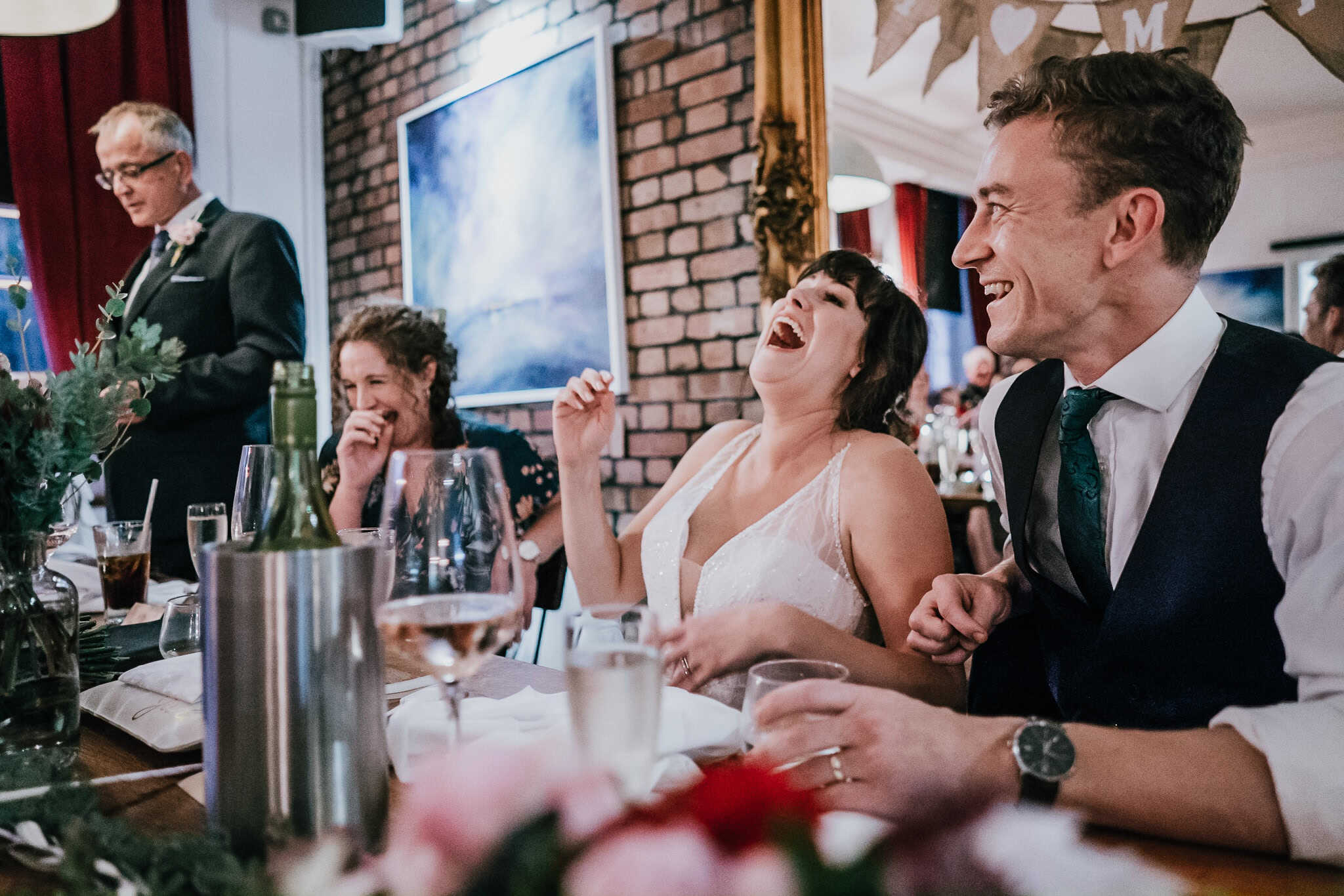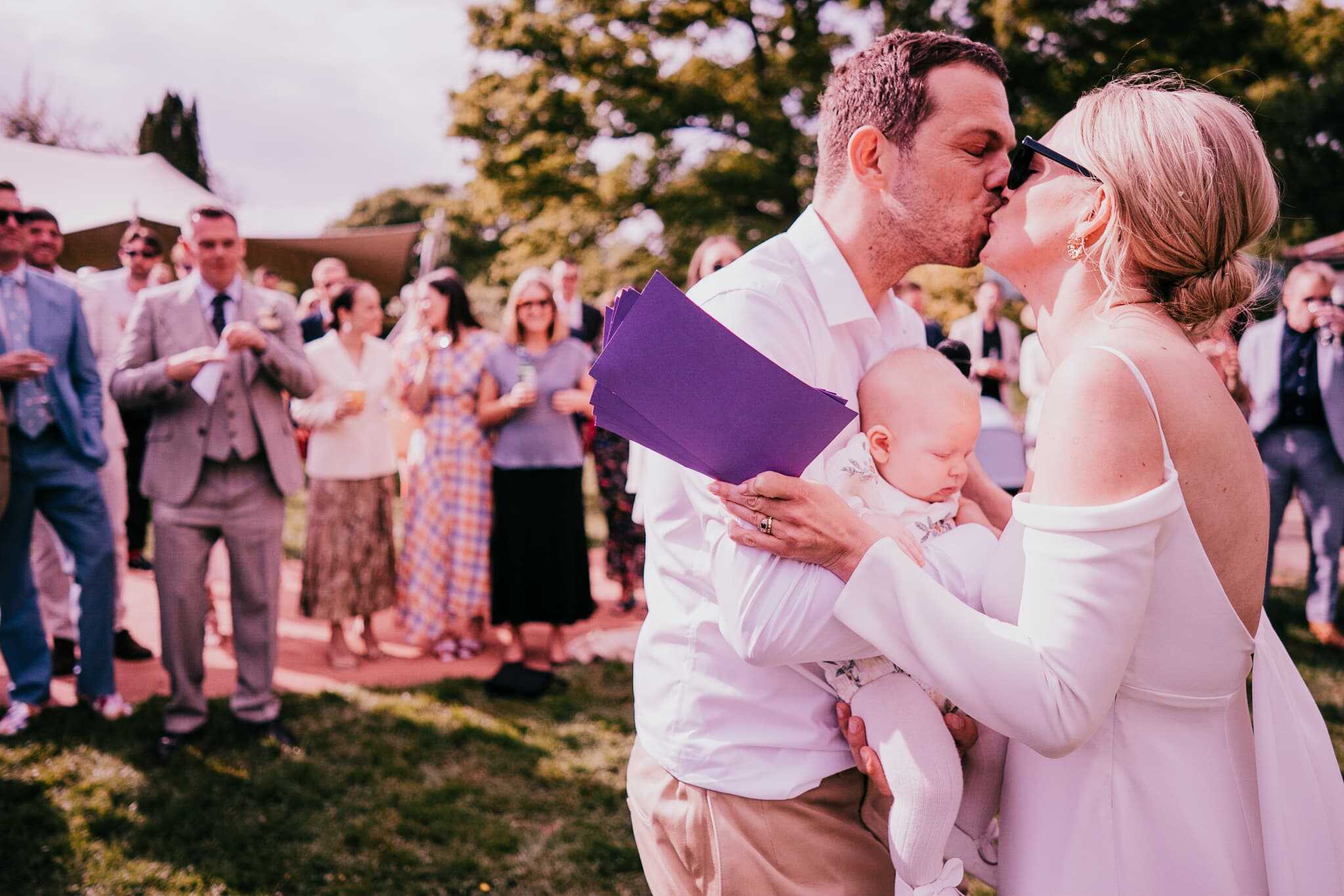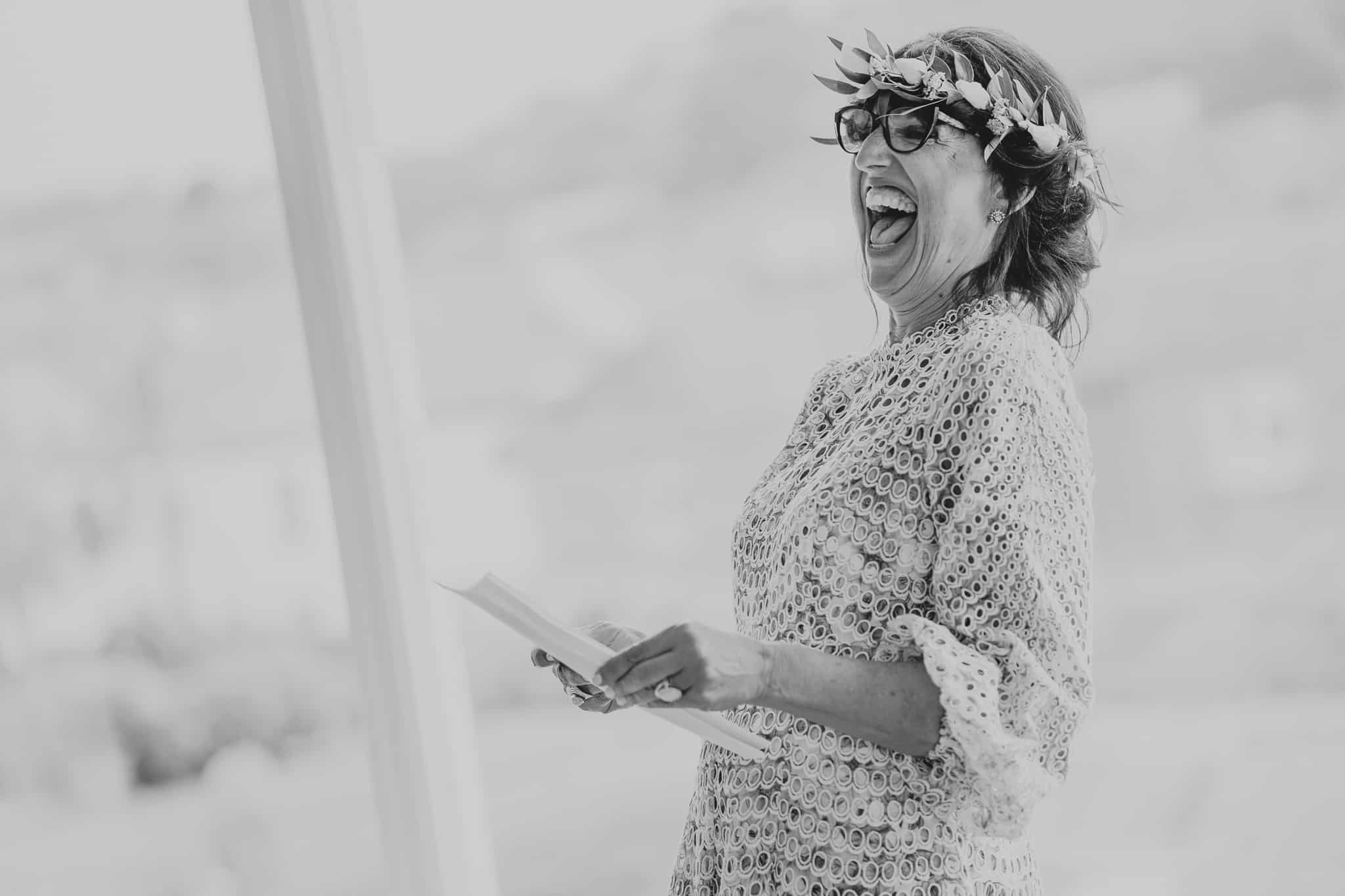Home » Wedding Speech Etiquette
(*Of course, if you’re looking for more than ‘advice’, check out all the different ways the Speechy team can help you write & deliver a great speech. Or check out our new AI-powered team member, SpeechyAI.)
‘(Of course, if you’re looking for more than ‘advice’, check out Speechy’s bespoke speechwriting service. We also have a range of excellent speech templates that might be just what you need.)
(*Of course, if you’re looking for more than ‘advice’, check out our eulogy writing service or our eulogy template.)
(Of course, if you’re looking for more than ‘advice’, check out Speechy’s bespoke speechwriting service. We also have a range of excellent speech templates that might be just what you need.)

Let’s get one thing straight: wedding speech etiquette matters—but only if it’s relevant.
Tradition might say the groom speaks “on behalf” of the bride. That the father of the bride must toast the happy couple. That the best man should finish with a shout-out to the bridesmaids. But tradition also told us women shouldn’t vote, men shouldn’t cry, and no one should wear sequins before sunset.
So yeah, let’s not take all the old rules too seriously.
Every wedding is different. The speeches should be too.
“Traditions are lovely. Laziness isn’t.”
— The Modern Couple’s Guide to Wedding Speeches by Speechy’s Heidi Ellert-McDermott
Wedding speech etiquette should be about thoughtfulness, not templates. Yes, be polite. Yes, acknowledge the people who matter. But please don’t default to what’s always been done.
At Speechy, we never slavishly follow etiquette guides. We use them as a tick box cheat sheet.
So, this etiquette guide isn’t here to tell you what you must do. It’s here to help you work out what feels right- and which traditions to tweak, bend, or break with confidence.

Traditionally, the father of the bride kicks things off. But modern weddings embrace all sorts of family arrangements- so don’t get stuck on the old labels. It could be a mum, stepdad, aunt, or best family friend opening the speeches. And they could be directing their tribute to the bride or groom. The role is flexible. The job remains the same:
A good speech doesn’t need grandeur or Grade 8 piano references. What it needs is warmth, truth, and maybe one perfectly-timed dad joke.
⏱ Stick to 6-8 minutes (around 1,000-1,300 words).
🚫 Don’t mention finances. Not even in jest. (Yes, we know everyone knows-but still.)
For more on how to nail this role, visit our Father of the Bride Speech Advice– it applies to any parent taking the mic.

In the past, the groom did all the thanking and gushing. Not necessarily because he wanted to, but because etiquette said he “spoke for the couple.”
These days? Not so much. Thankfully, couples can do whatever suits them.
Options include:
If You’re the Groom (or Solo Speaker)
Yes, you’ll want to thank a few people:
But keep it concise. No one needs an Oscars-style list. And remember to make the thanks genuine, not just the usual platitudes.
Most importantly, your speech should centre on your love for your partner. This is your one guilt-free chance to be properly soppy in front of your mates. Milk it.
Skip the old bridesmaids toast cliché. Yes, thank them (and all the wedding party) but toast something more inclusive – love, laughter, or whatever got you both to the altar.
⏱ Aim for 8-10 minutes max. Shorter if you’re both speaking.
💡 More support here: Groom Speech Advice

Let’s be honest—wedding speech etiquette has traditionally underestimated brides. But no more.
More brides are speaking (30% in fact). More are owning the mic. And guess what? The crowd loves it.
“Delivering my bride speech got more compliments than my dress.”
— Heidi Ellert-McDermott, author of The Modern Couple’s Guide to Wedding Speeches
Bride speeches are powerful. They don’t need to follow a set script. A bride can thank her people, gush about her partner, and crack a joke that lands better than anything the best man said. It’s not just a lovely surprise—it’s a highlight.
If you’re thinking about doing it: DO. IT.
Our advice to nailing it? Check out our Bride’s Speech Advice.

Modern weddings aren’t just about men on microphones. We want more mums. More sisters. More bridesmaids and best friends.
You don’t have to wait for a permission slip.
If you’re speaking:
Speechy is here for the matriarchy. Always.

Everyone expects the best man to be hilarious—but the best ones also bring the heart.
And yes, this etiquette applies whether you’re a best man, best woman, or anyone else who’s been chosen to embarrass the newlywed (with love).
Do:
Don’t:
Traditionally, you’d read out messages from absent friends. Today, WhatsApp exists. Don’t.
⏱ Ideal speech length? Under 10 minutes. 1,100-1,300 words.
Old school etiquette guides say the best man shouldn’t toast the couple. Debrett’s disagrees. So do we. Toast away.
More help here: Best Man Speech Advice

Same-sex weddings deserve better etiquette—not less.
Whether you’re two brides, two grooms, or a non-binary couple doing things your way, your speeches can be as traditional or rebellious as you like.
Some couples:
A few reminders:
For tailored inspiration, check out our Gay Groom and Lesbian Bride guides.

Old-school etiquette is about avoiding offence. Modern etiquette is about adding meaning.
Want to:
Go for it.
What matters is that speeches feel thoughtful and reflect the couple being celebrated.
“Etiquette only matters if it adds meaning or avoids awkwardness.
If it’s just tradition for tradition’s sake, bin it.”
— The Modern Couple’s Guide to Wedding Speeches
So, what is wedding speech etiquette?
It’s not a fixed formula. It’s a set of flexible ideas designed to help you speak with confidence, thoughtfulness, and a touch of flair.
Whether you’re a groom, bride, best friend, or proud parent—make your speech count.
Keep it short(ish), real and you.
And if you need a little help, we’re here. Check out our Speech Advice Hub for tips, templates, and editing services designed to make your speech unforgettable—for all the right reasons.
(And let’s just say a big old thank you to Alan Law Photography for his great pics)
The Speechy team are TV-trained scriptwriters/comedians by trade & we’ve helped 1,000s of speakers around the world deliver their dream speech.
Our advice has been quoted everywhere from The New York Times to Grazia and from Forbes to The Observer. Our founder has also featured on the BBC Sounds’ Best Men podcast with Jason Manford and written ‘The Modern Couple’s Guide to Wedding Speeches’, published by Little, Brown.














